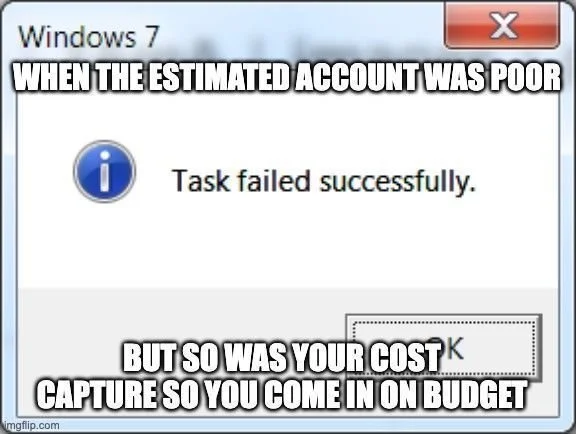Dan’s thoughts on variance as a measure
When thinking of service charges and measuring success, we often consider variance as a good way to track performance.
Variance is something you should measure as it can be a useful tool to show variance to customer expectation and be a leading measure for the customer experience. However, when used as a sign of good performance or accuracy, it has the potential to mislead and even drive poor behaviour.
Variance isn't always a good measure of accuracy. It doesn't tell you if either your budgeted or reconciled accounts are of a good standard, it merely tells you that they're similar. There's a degree of likelihood that they're similarly bad!
If you've routinely underestimated service charges (like much of the sector has), praising performance on low variance leads to praising under-recovery.
I've seen some teams stop looking for costs or removing costs on the basis that high variance was a bad thing. Being accurate is always the aim. If that leads to variance, it needs managing, it needs to be understood, and it needs to be communicated as early as possible with the residents that are impacted.
Good measures, like variance, can lead to the wrong behaviours if they're being used in the wrong way - make sure you're measuring the right things in the right way to get better results.

